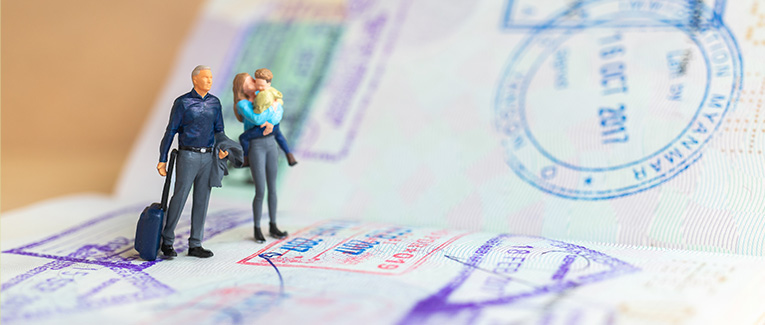
When it comes to US visas and immigration law, it’s important that you understand what immigrant intent means. Essentially, immigrant intent is the assumption by the US government that you intend to immigrate to the US, i.e., stay permanently, even if you are only applying for a short-term nonimmigrant visa like a B2 US tourist visa or F1 student visa. If you want to be approved for your visa, the burden of proof is on you to show that you do not have immigrant intent.
Why Do I Have to Prove I Don’t Have Immigrant Intent?
No matter what nonimmigrant visa you apply for, the US government is going to assume you plan to stay in the US permanently. This is called presumption of immigrant intent.
You are required to prove that you do not have immigrant intent in order to reassure US immigration officers that you have sufficient ties to your home country, and will not stay in the US permanently. You will only be approved for your US visa if you can prove this.
How Do I Prove I Do Not Have Immigrant Intent?
You will have several opportunities to prove you do not have immigrant intent both during your visa application process, and upon admission into the United States. We will go through each scenario in detail.
On Your DS-160 Application
Form DS-160 is your online US visa application form. On the DS-160 application, you will be asked several questions to determine if you have immigrant intent.
For instance, you will be asked, “Has anyone ever filed an immigrant petition on your behalf with United States Citizenship and Immigration Services?” Basically, this question is asking if anyone, be it a family member or employer, has ever filed a petition to help you get a Green Card. While answering “yes” to this question does not mean you have immigrant intent now, it does mean that you have had it in the past.
The DS-160 application will also ask you about any family members you have living in the US, including a spouse. The assumption is that if you have close relatives in the US, you are more likely to have immigrant intent.
It is extremely important that you answer all questions on the DS-160 truthfully. Revealing that someone has filed a petition for you to get a Green Card in the past, or that your sister lives in the US, does not mean you won’t get your visa; it simply means you’ll have to discuss the issue further at your consular interview.
At your US Consular Interview
At your US visa interview, you will meet with a consular officer. Their job is to determine if you should be approved for your nonimmigrant visa, and will only use the visa for the purposes it is intended. If the officer has reason to believe you will abuse the visa (such as by staying in the US permanently), they will likely deny the visa.
To help prove you do not have immigrant intent, the consular officer will ask questions that evaluate your ties to your home country, and how likely you are to return to it. For instance, they may ask if you have close family, own a home, and are gainfully employed in your home country, as these all give you ample reason to return to it. On the other hand, if you have no property, no family, and no job in your home country, it may be more difficult to convince the consular officer that you do not have immigrant intent.
Whatever the case may be, always answer all questions at the visa interview truthfully.
At the Port of Entry
Being approved for a nonimmigrant US visa only gives you permission to travel to the United States, not to actually enter it. The decision to let you enter is left up to a US Customs and Border Protection (CBP) officer, who you will meet with at an international airport, seaport, or land border crossing checkpoint.
CBP officers have a large amount of authority when it comes to who they admit into the US, and you may have to prove you do not have immigrant intent to the officer by answering a series of questions, such as:
- What is the purpose of your visit?
- When is your return trip?
- Questions regarding your personal assets and residence.
Helpful Port of Entry Documents
For most visitors, the conversation with the CBP officer will be quick and easy. However, if you are scrutinized, the following documents may help you prove to them that you do not have immigrant intent:
- Return airline tickets.
- A copy of your deed, mortgage, or rental agreement that proves residence in your home country.
- A letter from your employer that shows you have a job you must return to after your trip.
- A copy of your bank statement that proves you have the financial ability to support yourself.
- Proof of other assets, such as your property tax statement, or other documents showing strong financial ties to your home country.
By answering all questions honestly and being prepared with the right documentation, proving you do not have immigrant intent is a relatively simple process when applying for a nonimmigrant visa and when entering the US.
One Last Step
Before you travel to the US, take the right steps to protect your health and your finances. Healthcare in the US is extremely expensive. If you get sick or injured during your visit, it is unlikely you will be able to afford to pay for medical treatment out of your own pocket, and the medical insurance from your home country will not be sufficient or accepted.
Therefore, it is highly recommended that you purchase visitors insurance before your USA trip. It can help protect your pocketbook from sky-high medical costs, and allow you to get the treatment you need should an unexpected health issue pop up during your trip.

